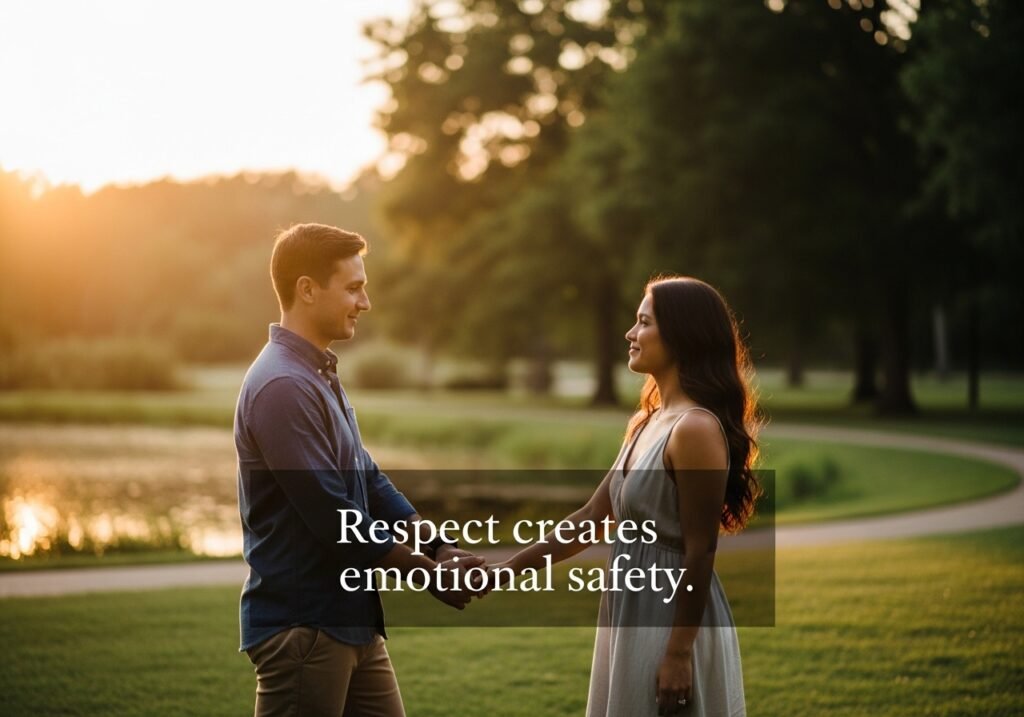lntroduction
In today’s fast-paced world, maintaining the mental n emotional wellness of relationship is more important than ever. A strong, fulfilling relationship doesn’t just thrive on love alone—it also relies on trust, communication, respect, and emotional support. When mental and emotional wellness is nurtured between partners, it creates a safe space for growth, healing, and long-lasting happiness.
In this blog, we’ll explore 7 powerful factors that contribute to the mental and emotional well-being of any relationship. Whether you’re in a new romance or a long-term commitment, these insights will help you strengthen your bond and cultivate a healthier, more fulfilling partnership.
Open and Honest Communication
At the heart of every thriving relationship lies communication. Without it, misunderstandings fester, and emotional distance grows. Couples who actively practice open dialogue often experience greater mental n emotional wellness of relationship, because they can express needs, fears, and desires without judgment.
Healthy communication involves more than just talking—it requires active listening. That means putting down your phone, making eye contact, and truly hearing your partner. By validating their feelings, you let them know that their emotions matter.

Tip: Set aside 10–15 minutes each day to talk without distractions. This strengthens connection and prevents unresolved issues from piling up.
Mutual Respect Builds Emotional Safety
Respect is the backbone of trust and emotional safety. When respect is absent, partners may feel dismissed, invalidated, or even disrespected. But when couples respect each other’s individuality, boundaries, and choices, it creates a climate where both can flourish.
The mental n emotional wellness of relationship thrives when partners practice empathy and value each other’s perspectives—even when they disagree. Instead of trying to “win” an argument, shift your mindset to understanding.

Example: Instead of saying, “You’re overreacting,” try, “I can see you’re upset. Can you help me understand what you’re feeling?”
Managing Stress Together
Life is full of challenges—job pressures, financial stress, family obligations. These external factors often spill over into relationships. Couples who learn to manage stress together enhance the mental n emotional wellness of relationship, rather than allowing difficulties to pull them apart.
Simple practices like taking a walk together, practicing mindfulness, or even sharing a laugh can reduce stress hormones and improve emotional balance. The goal is to be teammates, not adversaries, when stress arises.

Tip: Create a “stress toolkit” as a couple. It might include meditation, journaling, or engaging in a shared hobby when life feels overwhelming.
Emotional Support During Hard Times
Every relationship will encounter challenges—loss, illness, career setbacks. During such times, emotional support becomes the glue that holds couples together. Knowing that your partner is your safe haven fosters resilience and strengthens trust.
The mental n emotional wellness of relationship increases dramatically when both partners show compassion and avoid criticism. Even small gestures like holding hands, offering reassurance, or simply sitting together in silence can communicate love and presence.

Remember: It’s not about fixing problems for your partner—it’s about walking alongside them through their struggles.
Healthy Boundaries Protect Love
Boundaries are not walls—they are guidelines that protect emotional safety and well-being. Couples who establish healthy boundaries show that they value both their togetherness and individuality.

Examples of boundaries that strengthen the mental n emotional wellness of relationship include
- Respecting personal space and privacy
- Supporting each other’s hobbies and friendships outside the relationship
- Avoiding toxic behaviors like name-calling or dismissiveness during disagreements
Healthy boundaries prevent resentment and encourage both partners to grow without feeling suffocated.
Prioritizing Mental Health Individually and Together
A relationship can only be as healthy as the individuals in it. Taking care of personal mental health is a gift to both yourself and your partner. When you prioritize self-care—whether through therapy, journaling, meditation, or exercise—you show up stronger and more balanced in your relationship.
Couples can also focus on shared wellness practices, such as yoga, gratitude journaling, or even regular date nights that nourish emotional intimacy. This shared focus magnifies the mental n emotional wellness of relationship because both partners are actively investing in their joint happiness.

Celebrating Love and Gratitude Daily
Finally, relationships flourish when partners take time to celebrate love and express gratitude. It’s easy to take each other for granted, but consistent appreciation keeps the connection alive.
When couples make gratitude a habit, the mental n emotional wellness of relationship expands, filling the bond with positivity and emotional security.

Examples of simple gratitude practices:
- Sending a sweet text during the day
- Saying “thank you” for small acts of kindness
- Keeping a shared gratitude journal to reflect on positive moments together
Why the Mental n Emotional Wellness of Relationship Matters
The health of a relationship goes beyond surface-level romance. When couples actively cultivate mental and emotional wellness, they create a foundation for deeper trust, longer-lasting love, and resilience through challenges. Neglecting this aspect, on the other hand, can lead to misunderstandings, resentment, and emotional burnout.
Think of your relationship as a garden—it requires daily care, attention, and nurturing to thrive. By focusing on these seven factors, you not only strengthen your bond but also create an environment where both partners can grow as individuals and as a team.
Final Thoughts
The mental n emotional wellness of relationship is not a destination—it’s an ongoing journey. Every couple faces ups and downs, but what makes the difference is the effort to communicate, respect, and support each other through it all. By prioritizing mental health, emotional safety, and daily gratitude, you build a love that stands the test of time.
A thriving relationship doesn’t just make you happier—it enriches your overall life, bringing peace, joy, and fulfillment. Start small, stay consistent, and watch your love grow stronger every day.
FAQs
FAQ 1: What does mental n emotional wellness of relationship really mean?
The mental n emotional wellness of relationship refers to the balance and harmony between partners where both feel emotionally supported, mentally safe, and respected. It’s about creating a bond where communication, trust, empathy, and healthy boundaries are prioritized so that both individuals thrive, not just the relationship itself.
FAQ 2: How can couples improve their mental n emotional wellness together?
Couples can improve their mental n emotional wellness of relationship by practicing open communication, managing stress as a team, setting healthy boundaries, and prioritizing both individual and shared self-care practices. Regularly expressing gratitude and spending quality time together also enhances emotional intimacy and strengthens the bond.
FAQ 3: Why is mental n emotional wellness important for long-term relationships?
Without nurturing the mental n emotional wellness of relationship, long-term bonds can become strained by misunderstandings, resentment, and emotional burnout. A focus on wellness ensures both partners feel valued and understood, which builds resilience during challenges and keeps love alive through the years.